The Peoples Democratic Party (PDP) shunned Independent National Electoral Commission (INEC) organised parley with political parties.
There were about sixty political parties were in attendance.
PDP and it’s presidential candidate in the 2019 poll, Alhaji Atiku Abubakar are already in Court challenging the outcome of the election.
The parley is meant to review the Conduct of the 2019 general elections.
Otunba Niyi Adebayo represented the All Progressive Congress (APC).
INEC had announced that it will commence a National dialogue on the last general elections with the aim of improving on the shortcomings identified in the last Feburary and March 2019 polls.
In his keynote address, Prof Mahmood Yakubu said with the general elections over it was necessary for the commission to review the conduct of the polls with a view of improving electoral process in the country.
Yakubu also pointed out that the meeting with political parties will afford the commission to hear directly from the political parties who are critical players in the elections.
The commission, he further said conveyed to each political parties issues to be discussed at the meeting.
He also used the opportunity to charge the political parties on the need to do internal cross-examination to see if they have been complying with extant law.
Citing an aspect of the law which directs the parties to submit two reports at the end of elections, Yakubu noted that only one political party and one presidential candidate have so far submitted reports to the commission.
Going forward, he tasked political parties on the need to develop their internal democracy .
“The Commission has promised the nation that it will undertake a major national conversation on the future of our electoral process. Having concluded our in-house reviews, today marks the beginning of our consultation with stakeholders. This is therefore an auspicious occasion to, first of all, hear from those who actually fielded candidates for 1,558 constituencies in which elections were held in 2019 and deployed agents to 119,973 polling units as well as the various levels of collation of results and declaration of winners nationwide.
“It is important to remind us that as we review the 2019 General Elections in order to identify successes, challenges and the way forward, we should also ask ourselves the extent to which we have complied with the extant laws. I wish to remind you that the Electoral Act 2010 (as amended) requires each political party to submit two election expenses reports to the Commission. First is the disclosure of material contributions received from individuals and corporate bodies three months after the announcement of the results of the General Election as provided for in Sec. 93(4) of the Electoral Act. So far, no political party is in compliance. Secondly, parties are required to submit audited returns of their election expenses within six months after an election as provided for in Sec. 92(3)[a] of the Electoral Act. Although we are still within the time frame provided by law, so far only one party has filed its returns. Similarly, the Commission notes that only one presidential candidate has submitted financial expenses report. We wish to remind leaders of political parties of their obligations under the law.
“We have already conveyed to each political party the range of issues to be discussed at this meeting. We are also aware that many of you are familiar with previous efforts to reform the electoral process. In the last eleven years, wide ranging recommendations have been made by several committees on electoral reform, notably the Uwais Committee (2008), the Lemu Committee (2011) and most recently the Nnamani Committee (2017). The various Committees made essentially similar recommendations. They identified the need to re-examine the extensive responsibilities of INEC, the roles and responsibilities of the security agencies during elections, the imperative of internal democracy within political parties, issues of inclusivity with particular reference to marginalised segments of our society (women, youths and persons living with disabilities), voter inducement which has now assumed a new dimension with vote-buying at polling units on election day, reform of the electoral legal framework, violence and hate speech during the electioneering process, and appropriate sanctions for violators of our electoral laws.
Tag: Political Parties
-
PDP boycotts INEC parley with political parties
-
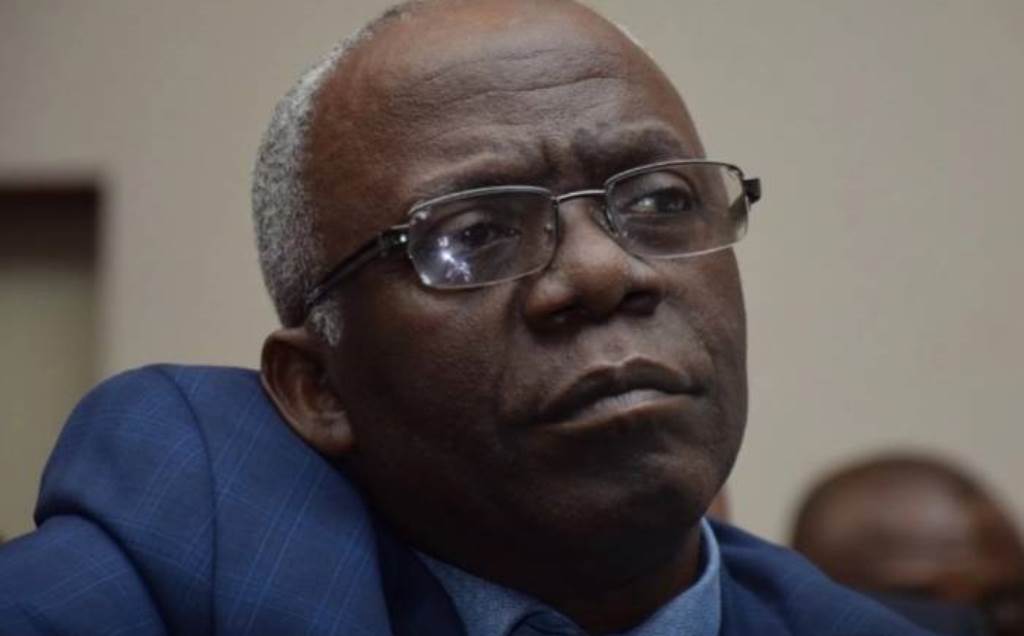
2023: Falana advocates de-registration of 81 ‘paperweight’ political parties
A senior advocate of Nigeria, Femi Falana has urged the Independent National Electoral Commission to wake up to its duties by de-registering political parties that failed to scale some minimum constitutional benchmarks.
In a statement today, Falana, a leading human rights advocate, said the application of the rules will see the number of political parties cut from 91 to fewer than 10.
Contrary to the widespread belief that INEC has no such power, the human rights lawyer said the power was restored to the agency following the 2017 constitutional amendment.
The learned lawyer recalled how some political parties successfully challenged INEC’s power after the amendment of the Electoral Act in 2010. He said the National Assembly bolstered the commission via the constitutional amendment.
“Disturbed by the mockery of multi party democracy in the country through the unprincipled proliferation of political parties the National Assembly amended the Electoral Act 2010 to empower INEC to de-register political parties that failed to win any election. Since political parties were registered pursuant to section 222 of the Constitution the suits filed by the affected political parties succeeded as the Federal High Court declared the amendment unconstitutional and set it aside.
Among the grounds are that a party can be de-registered if it breaches any of the requirements for registration and fails to win at least twenty-five percent of votes cast in one State of the Federation in a Presidential election; or one Local Government of the State in a Governorship election.
“However, the National Assembly took advantage of the 2017 constitutional review to reduce the number of registered political parties in the country. Thus, the Constitution of the Federal Republic of Nigeria, 1999 (Fourth Alteration, No 9) Act, 2017 enacted on May 4, 2017 has amended section 225 of the 1999 Constitution to empower the Independent National Electoral Commission to de-register political parties,” Falana wrote.
Among the grounds are that a party can be de-registered if it breaches any of the requirements for registration and fails to win at least twenty-five percent of votes cast in one State of the Federation in a Presidential election; or one Local Government of the State in a Governorship election.
A party can also be de-registered if it fails to win at least one ward in the Chairmanship election; one seat in the National or State House of Assembly election; or one seat in the Councillorship election.
“From the foregoing, it is indubitably clear that INEC has been conferred with enormous powers to de-register political parties that fail to meet the fresh constitutional prerequisites.
“Going by the results of the 2019 general elections the 91 registered political parties may have been reduced to less than 10 that may have scaled the constitutional hurdle.
“Not a few people would hail the constitutional amendment in view of the prostitution of the political system by political parties are ill-equipped to promote participatory democracy, economic freedom, human rights and rule of law.
“But it ought to be pointed out that the planned de-registration of political parties that fail to win elections is likely to limit the political space to the so called mainstream political parties that are not committed to any political philosophy or ideology”, Falana said.
Falana, who deplored the opportunism of some political parties, as demonstrated in the last general election, urged INEC to sanitise the democratic space by applying the rules and enforcing relevant provisions of the constitution and the electoral act.
“INEC is called upon to formulate new guidelines for the registration political parties within the ambit of the Constitution.
“This should be done in view of the fact that not less than 100 political associations are said to have submitted applications for the registration of new political parties. With respect to registered political parties INEC must fully comply with section 225(2) of the Constitution by sanctioning them if they fail to submit a detailed annual statement and analysis of their sources of funds and assets.
“This will go a long way to check the monetisation and brazen manipulation of the democratic process by political godfathers.
“More importantly, INEC should henceforth exercise its powers under Section 224 of the Constitution by ensuring that the programmes as well as the aims and objects of every political party conform with the provisions of the fundamental objectives and directive principles of State Policy enshrined in Chapter II of the Constitution”, Falana said.
-
![18 out of 91 political parties not fielding candidates in Saturday’s presidential poll [Full List]](https://thenewsguru.ng/wp-content/uploads/2016/11/inec-election.jpg)
18 out of 91 political parties not fielding candidates in Saturday’s presidential poll [Full List]
Eighteen (18) out of the 91 registered political parties will not be fielding presidential candidates in Saturday’s elections.
These parties are:
Congress of Patriots (COP)
Alternative Party of Nigeria (APN)
Legacy Party of Nigeria (LPN)
Modern Democratic Party (MDP)
Movement for The Restoration and Defence of Democracy (MRDD)
New Generation Party (NGP)
New Progressives Movement (NPM)
Alliance for Democracy (AD)
Peoples Democratic Movement (PDM)
Peoples Progressives Party (PPP)
Socialist Party of Nigeria (SPN)
United Progressives Party UPP)
Young Democratic Party (YDP)
Youth Party (YP)
Zenith Labour Party (ZLP)
Democratic Alternative (DA)
There are 91 registered political parties, out of which 73 parties are fielding presidential candidates, leaving 18 political parties not fielding presidential candidates.
The Independent National Electoral Commission (INEC) on January 17 released its final list of presidential candidates.
Among the 73 candidates, two parties; the Social Democratic Party (SDP) and Allied Congress Party of Nigeria (ACPN) have issues although both parties are listed on INEC’s final list.
ACPN has its name and the name of its candidate on INEC’s list but the party’s presidential candidate, Oby Ezekwesili, withdrew from the race even though the deadline for withdrawal and substitution had elapsed.
SDP, on the other hand, has only its party name on INEC’s list because the party failed to send the name of its candidate, due to court cases.
-
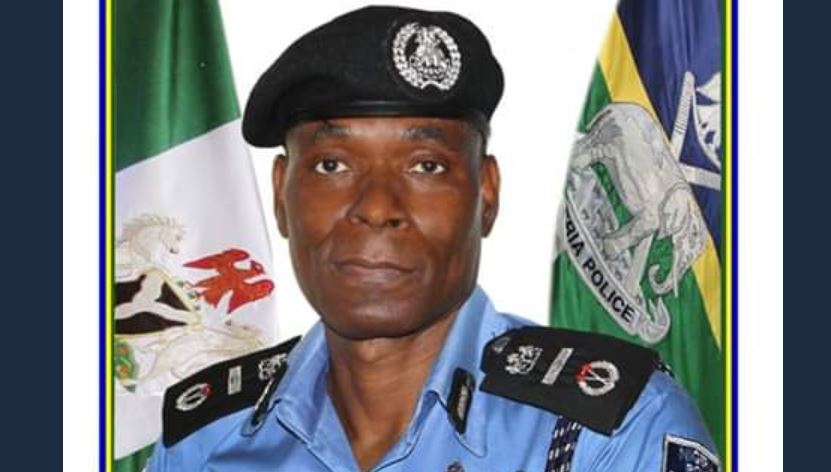
2019: Acting IG promises fairness to all political parties, reverses Idris’ last minute postings
The newly appointed acting Inspector-General of Police, Mohammed Adamu on Tuesday promised fairness to all political parties particularly those fielding candidates for elective positions in the forthcoming general elections.
Adamu stated that there were rules of engagement for the Nigeria Police, adding they would be strictly applied in dealing with security matters. He stressed that the police would not pander to the desires of any groups or interests.
Recall that Adamu was decorated by President Muhammadu Buhari at the Presidential Villa. Idris, who was appointed IG in 2016, bowed out on Tuesday as he retired from service at the age of 60 years.
Adamu had gone to see Buhari in company with Idris, shortly before the new IG was decorated.
The decoration took place after Adamu had earlier on Tuesday morning met briefly with the Chief of Staff to the President, Mr Abba Kyari.
Speaking with State House correspondents after the decoration, Adamu stated, “Well, we are professionals. We are going to stick to the rules. We are going to do the right thing; we will not go outside the ethics of our job to do things that are untoward. Everybody will be given a level playing field to play his or her politics.”
Asked to speak on the strategies in place for the elections, Adamu replied, “On the elections, you have heard from the former IG; adequate arrangements have been made to make sure that free and fair and credible elections take place in Nigeria.
“We are going to build on the strategies put in place to make sure that we have hitch-free elections in the country.”
On his part, Idris bade Nigerians goodbye, saying that he handed over to an officer he knew so well and had the training to head the police.
Idris advised his successor to go round the country and adopt measures to ensure that the police “gives maximum protection to lives and property.”
Adamu’s appointment ended weeks of speculation and suspicion over the alleged plan by Buhari to extend Idris tenure.
However, on assuming office on Tuesday, the new Police Chief has reportedly reversed some last-minute postings and redeployments carried out by Idris few days before his retirement.
It was gathered that the redeployment of the Lagos State Commissioner of Police, Imohimi Edgal, by the former IG was overturned while other senior officers who were also posted to new commands and formations had been asked to stay action until further notice.
This development, sources said, meant that the redeployment order by Idris would not be obeyed unless approved by the acting IG.
Shortly after meeting with the DIGs in his office at the force headquarters, Adamu was seen going from floor to floor, meeting officers and familiarising himself with his men.
Meanwhile, there are strong indications that four out of the seven Deputy Inspectors-General of Police may leave the force alongside the former Inspector-General of Police, Ibrahim Idris, who retired on Tuesday.
It was gathered that the DIGs, who are members of the Police Management Team and senior to the acting IG, Mohammed Adamu, might be forced out of the service to pave the way for him to set up a new management team he could work with.
It was gathered that those that might be affected by the reorganisation include DIG Maigari Dikko in Charge of Department of Finance and Administration; DIG Joshuak Habila, Department of Operations; DIG Emmanuel Inyang, Information and Communications Technology; and DIG Agboola Oshodi-Glover, Logistics and Supply Departments.
Police sources said that DIGs Mohammed Katsina (Research and Planning Department); Sani Mohammed (Training and Development Department); and Peace Madueke -Abdallah (Federal Criminal Investigation and Intelligence Department) who were promoted late last year could survive the impending purge of the Police Management Team.
A source stated, “The three DIGs were on the same rank as Adamu last year. In fact, Abdallah was a Commissioner of Police the same time the acting IG was also a CP, so they were almost on the same level. By virtue of this fact, the new police boss may include them in his management team and save their career from sudden death.”
The acting IG enlisted into the Force on February 1, 1986 as Cadet Assistant Superintendent and had attended several Senior Officer Courses on Law Enforcement, Crime Prevention, Control and Management within and outside Nigeria.
Before his appointment as acting IG, he was at the National Institute for Policy and Strategic Studies, Kuru, Jos, Plateau State.
He was also the Commissioner of Police in Ekiti and Enugu states and also Assistant Inspector-General of Police in charge of Zone 5 Police Command Headquarters, Benin, Edo State.
-
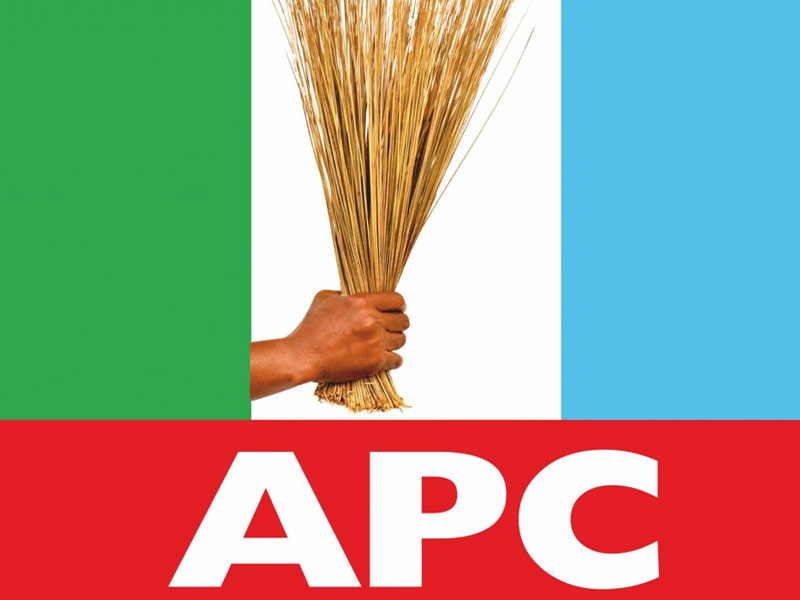
2019: Rivers APC rules out possibility of adopting candidates from other parties
The Rivers State Chapter of the All Progressives Congress (APC) has said that it was not thinking of adopting a candidate from another political party because it does not envisage losing its case at the Appeal and the Supreme courts.
Recall that the State APC had filed an appeal against the disqualification of its candidates from the 2019 general elections in the state, a ruling that was recently given by a Federal High Court in Port Harcourt.
State Publicity Secretary of the APC, Mr. Chris Finebone, told our correspondent on Saturday that it was hypothetical to think that the party could lose its matter at both the Appeal and Supreme courts.
Finebone maintained that the state APC would determine its next line of action by the time it exhausted all the judiciary options available to it.
He said, “It is too hypothetical for that kind of situation to happen (adopting a candidate of another party if the party loses at the Appeal and Supreme Courts). In such a situation, you will determine what to do when you get there.
“The ‘ifs’ here are too many and that is why we are saying that it is hypothetical and I can tell you that we don’t envisage that situation (losing at the Appeal and Supreme courts).”
On whether there are moves by the state APC to assuage the feelings of aggrieved members, Fine explained that the party would first exhaust the numerous issues in court.
He stated that he was not aware of any peace move between Senator Magnus Abe’s group and the APC in the state.
“There no situation that I know of to show that there is peace move between us and Abe.
“These are things that are already in court and we believe that at the stage we are currently, let the issues get exhausted through the court system, especially for some of the issues,” he stressed.
-
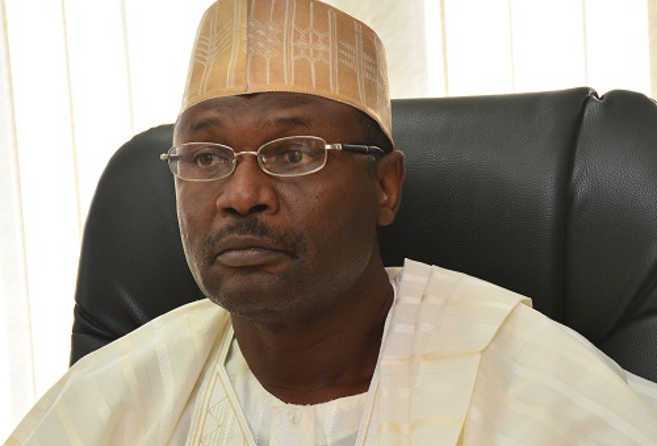
2019: We’re not into ‘rigging business’ – INEC assures Nigerians, political parties
The Independent National Electoral Commission (INEC) has revealed it wasn’t in the business of rigging elections.
The Chief Press Secretary to INEC Chairman, Mr Rotimi Oyekanmi, said this as he dismissed allegations made by the Peoples Democratic Party, that it wants to compromise the forthcoming elections.
Oyekanmi urged the PDP to provide the evidence in its possession to prove its allegations. He said, “Otherwise, the PDP should cure itself of this recurring hallucination which I am sure Nigerians no longer buy. Certainly, INEC is not into the rigging business.”
The PDP had earlier on Wednesday advised INEC to distance itself from an alleged plot to compromise the Electoral Guidelines and pave the way for the alteration of the forthcoming general elections results.
The Director, Media and Publicity, PDP Presidential Campaign Organisation, Kola Ologbondiyan, gave the advice at a news conference on Wednesday in Abuja.
Ologbondiyan alleged that Nigerians were already aware that the commission’s Chairman, Prof. Mahmood Yakubu, was under pressure to drop the display of results at the polling units as well as the electronic transmission of polled figures to INEC server from its guidelines.
He said that the display of results at the polling units ensured that results posted at all levels remained those originally announced at the various polling units, while the electronic transmission to INEC server ensured that the results from the polling centres were not tampered with.
“Prof. Yakubu must not succumb to the pressure of the Buhari Presidency, because doing so will definitely set him on a collision course with Nigerians,’’ he said
-
2019: Political parties reject Buhari’s plan to extend IGP’s tenure for six months
Indications have emerged that President Muhammadu Buhari may have approved a six-month tenure extension for the Inspector-General of Police, Ibrahim Idris.
Officially, Idris is due to retire from the Nigeria Police Force on January 3, 2019, having put in the mandatory 35 years in service. But he was said to have lobbied some senior Presidency functionaries, who, in turn, got Buhari to extend the IG’s tenure.
However, the opposition political parties, under the aegis of the Coalition of United Political Parties (CUPP), are threatening to drag President Muhammadu Buhari before the court over the planned tenure extension.
The President was said to have agreed in principle to grant the IG additional six months in office to enable him to coordinate and supervise the forthcoming general elections in the country.
A top source, who confirmed the development to newsmen in Abuja on Saturday, explained that the IG might get the official confirmation of the tenure extension “any moment from now.”
He said, “It is a done deal; the IG’s tenure has already been extended because the Presidency has confidence in him. He would get the official confirmation any moment from now; that is if he hasn’t received it already.
“Extending the IG’s tenure is not unexpected. The other service chiefs had their tenure extended by a year. So, giving Idris the same privilege is nothing out of the ordinary.”
Meanwhile, the planned extension of tenure, the CUPP claimed, would only afford the police boss the opportunity to do the President’s bidding and work for the ruling All Progressives Congress (APC) in the 2019 general elections.
They have therefore resolved to resist the move, claiming the nation’s constitution does not make any provision for tenure extension.
The first national spokesperson for the CUPP, Imo Ugochinyere, in an interview on Friday, said the opposition parties were shifting their attention to the leadership of the force following Buhari’s decision not to sign the Electoral Act (Amendment) Bill and the inability of federal lawmakers to override his veto.
He said, “We are insisting that the Inspector-General of Police, whose tenure is expiring in January, must leave the office.
“So, we are demanding that the President should not extend his tenure because there is no such provision in the constitution. A former police officer cannot be an Inspector-General of Police. We will be filing an action in court to ensure that he leaves office in January.”
Also, the Coalition in Defence of Nigerian Democracy and Constitution has kicked against the alleged tenure elongation, noting that Idris had so far “demonstrated lack of capacity and inability to effectively police Nigeria as the IG.”
The CDNDC Coordinator, Dare Atoye, argued that wanton killings and criminality had increased under Idris leadership of the police, adding that there were more competent officers in the NPF that could do the job better.
He said, “The only good thing that can happen to the Nigeria police is for the government of President Buhari to look for a competent replacement; somebody who has the discipline and the character to lead the force. I believe many Nigerians would agree with me that the wanton killings in the country and the lack of training without equipment have been aggravated under his leadership.”
Appraising the alleged reform of the Special Anti-Robbery Squad, the activist observed that no reform had taken place, noting that the impunity being carried out by the squad was merely suppressed.
He cited the arrest and arraignment of an Abuja-based activist, Deji Adeyanju, by the police for homicide, a charge for which he was discharged and acquitted by a Kano High Court in 2009.
The Secretary-General, Basic Rights Enlightenment Foundation, Ikechukwu Maduike, also kicked against the government’s decision, stressing that “the police had become worse under the IG.”
The lawyer said, “We need someone who has new ideas so we can see something new in the force. I don’t think this IG has what it takes to transform the police force.”
-
Only 73 political parties will partake in 2019 elections – INEC
The Independent National Electoral Commission (INEC) has said a total of 73 out of Nigeria’s 91 political political parties will take part in next year’s general elections having submitted details of their candidates to the commission before the deadlines.
Chairman of the Commission Mahmood Yakubu, said this in his opening remarks at the two-day capacity building workshop by INEC and the European Center for Elelectoral Support (ECES) to train journalists on INEC beat.
He also said the commission has been joined as a respondent in about 396 suits in various courts across the nation.
He revealed that at the end of the period for the substitution and withdrawal of candidates for the presidential election, 73 political parties had filed their nominations.
He also said a few parties (which he did not name) among the 79 that listed presidential candidates, nominated candidates below the mandatory age of thirty-five (35) years for presidential and vice presidential candidates and the attention of the parties concerned had been drawn to it.
Noting the importance of the media, he said the commission sees the press as partners and is organising the workshop to “carry the press along for the success of the general election”.
According to Mr Yakubu, elections are not just about the right to vote but the knowledge of the voting process.
This includes information about political parties, candidates and their programmes, facilitating the full participation of the citizenry in the democratic elections, “which is why the media plays an important role”.
“The media needs unfettered access to information,” he said.
With the campaigns for governorship and state assembly elections beginning Saturday, December 1, the commission has successfully implemented seven out of the 14 activities on the commission’s timetable, he said.
The chairman noted the commission will never tolerate any breach of the strict timelines provided for.
For National Assembly elections, he also revealed that 1,848 candidates: 1,615 males and 233 females are vying for 109 senatorial seats while 4,635 candidates: 4,066 male and 569 female are competing for the 360 seats in the House of Representatives.
For state elections, 1,068 candidates (980 males and 88 females) are contesting for 29 governorship positions with 805 males and 263 females for deputy governorship slots.
He said the commission was working on the list of candidates nominated by political parties for the 991 state assembly constituencies as well as the 68 area council chairpersons and councillorship positions.
He, however, assured the full list of candidates and their political parties will be published for public information in line with the commission’s timetable and schedule of activities.
Challenges.The chairman lamented the nature of primaries by parties in recent times, and their internal party democracy.
He also revealed the commission has been joined in 396 pending actions in various courts across the country arising from the conduct of party primaries and nomination of candidates by political parties.
He said the commission also received 302 requests for Certified True Copies (CTC) of documents, mainly from its monitoring of party primaries and copies of personal particulars of candidates.
These requests, he said, are obviously a prelude to more court actions.
He said they also received 52 petitions and protests from aggrieved party aspirants. He said this implies that ahead of the general elections, there will be pre-election litigations.
“Parties that fail to respect the democratic process in selecting candidates during primary elections lose the moral right to complain about secondary elections. I wish to reassure the nation that we shall continue to maintain our neutrality as the umpire, registrar and regulator of political parties,” he said.In his goodwill message, the project director, ECES, Rudolf Ebling, said in view of the commission’s commitment to conduct free and fair elections in 2019, it has become imperative to engage “unique groups” on emerging electoral issues.
-
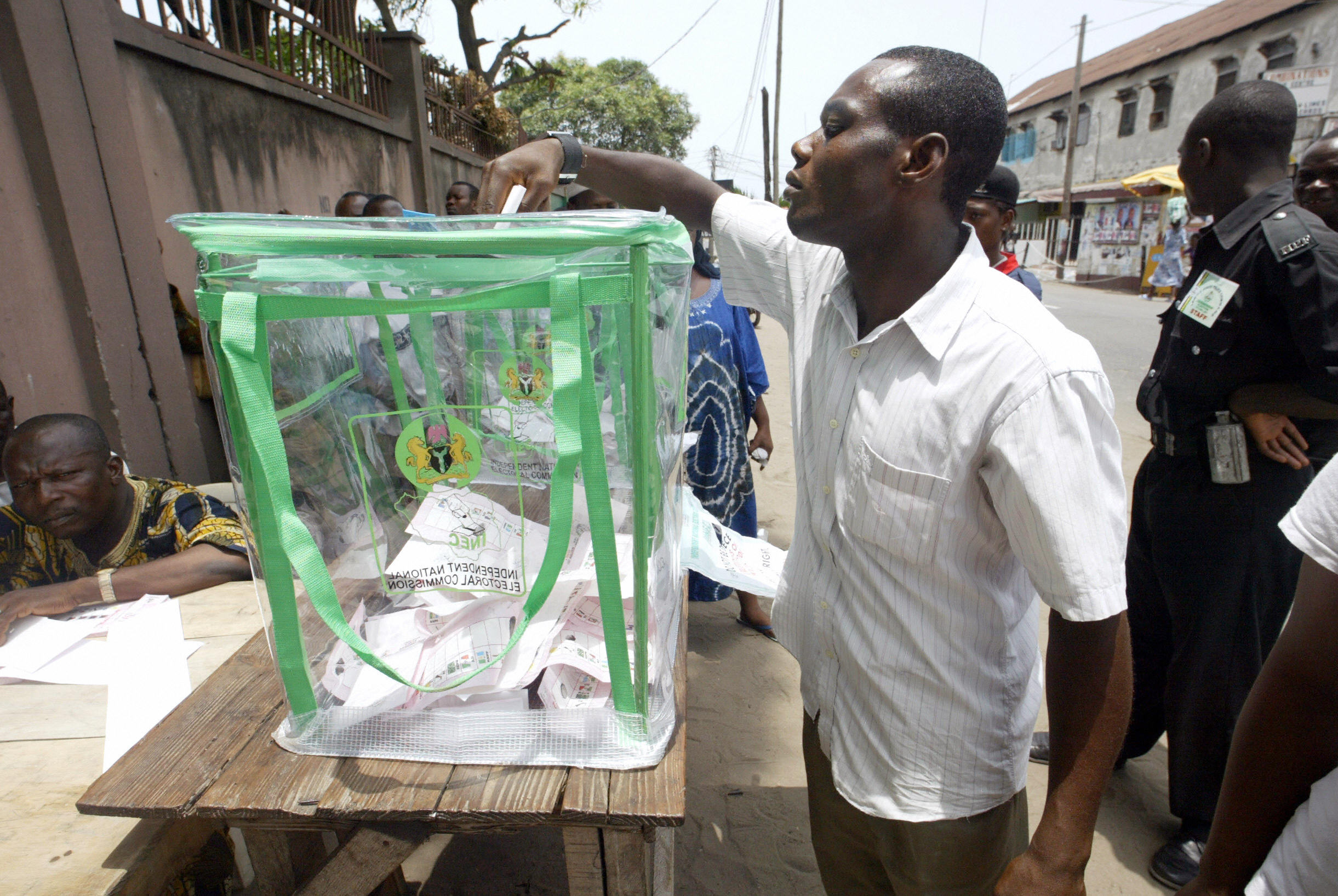
2019: 79 political parties submit names of candidates for presidential election
The Independent National Electoral Commission (INEC) on Friday confirmed receiving 79 names of candidates willing to run for the 2019 presidential election under the platforms of the various registered political parties in the country.
The chairman of the commission, Mahmood Yakubu, said this during a press briefing with journalist at the headquarters of the commission in Maitama, Abuja.
The chairman also said aside the 79 presidential candidates, 89 parties fielded 1,803 candidates for the 109 senatorial seats and 4,548 for the 350 federal constituencies.
The chairman promised to make available a breakdown of the different candidates and the parties they represent.
More details later…